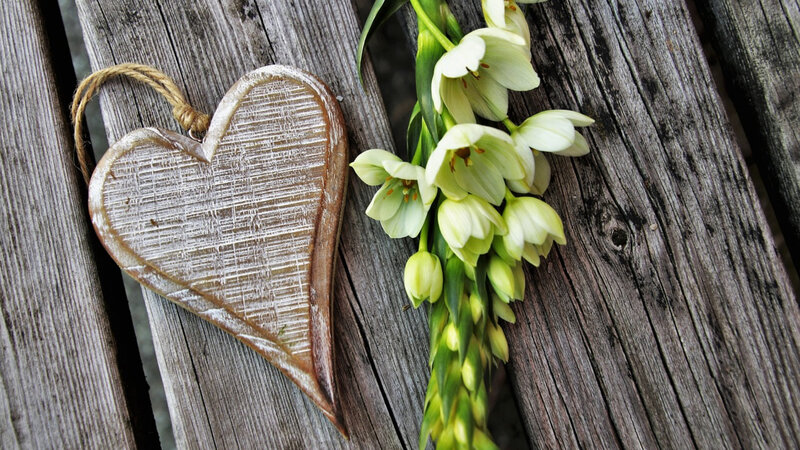Luck India: Unraveling India’s Luck Traditions and Destiny
India, a land steeped in mysticism, spirituality, and ancient traditions, has captivated the world with its enigmatic charm. From vibrant festivals and diverse cultural practices to awe-inspiring historical sites and a tapestry of beliefs, India has a unique allure that transcends boundaries. At the heart of this enchanting country lies the concept of luck, which holds immense significance in Indian culture.
Luck, often considered an intangible force that can shape destinies and influence outcomes, has a profound impact on the lives of many Indians. It is intricately woven into the fabric of their everyday existence, guiding their decisions, rituals, and aspirations.
Whether it’s the choice of an auspicious wedding date, the seeking of divine blessings for success, or the use of lucky charms and amulets, the quest for good fortune permeates the lives of countless individuals.
In India, luck is not merely a matter of chance but is deeply entwined with spirituality, karma, and the cosmic balance. The belief in karma, the law of cause and effect, emphasizes the idea that one’s actions in this life and previous lives shape their current circumstances.
This notion lends a sense of personal agency and responsibility, as individuals strive to lead virtuous lives and perform good deeds to attract positive outcomes.
The Significance of Luck India Culture
Luck holds immense significance in Indian culture. It is believed that luck can greatly influence an individual’s destiny and overall well-being. Indians attribute both positive and negative events in their lives to luck. Good luck is sought after to ensure prosperity, happiness, and success, while bad luck is feared and efforts are made to ward it off.
The Influence of Astrology and Numerology
Astrology and numerology play a crucial role in shaping beliefs about luck in India. Many people consult astrologers and numerologists to gain insights into their luck and destiny. Astrological charts, horoscopes, and auspicious dates are considered essential in important life events such as weddings, business ventures, and even naming newborns.
Rituals and Superstitions
Indian society is replete with rituals and superstitions aimed at attracting good luck or averting bad luck. From hanging lemon and chili strings outside homes to using specific colors and symbols during religious ceremonies, these practices are deeply ingrained in the cultural fabric. It is believed that adhering to these rituals can bring fortune and ward off ill fate.
Sacred Places and Luck
India is home to numerous sacred sites believed to be imbued with luck and blessings. Places like Varanasi, Amritsar, and Tirupati are considered particularly auspicious. Pilgrims flock to these locations to seek blessings, perform rituals, and experience a spiritual connection in the hopes of enhancing their luck.
The Role of Karma
Karma, the cosmic law of cause and effect, is closely intertwined with the concept of luck in India. According to the principle of karma, one’s actions in past lives and the present determine their fate and level of luck. The belief in karma encourages individuals to perform good deeds and live virtuous lives to attract positive outcomes.
Folklore and Mythology
Indian folklore and mythology are rich with tales of luck and destiny. Stories of gods, goddesses, and legendary figures influencing the lives of mortals abound. These narratives not only entertain but also impart moral lessons, emphasizing the interplay between luck, fate, and personal choices.
Iconic Luck India Symbols
Certain symbols are regarded as lucky in Indian culture. The swastika, an ancient symbol representing well-being and good fortune, holds deep significance. Other symbols like the lotus, elephant, and peacock are also associated with luck and are commonly depicted in art, architecture, and religious ceremonies.
Lucky Festivals and Celebrations
Festivals in India often serve as occasions to invoke and celebrate luck. Diwali, the Festival of Lights, is a prime example. People light lamps, burst fireworks, and exchange gifts to welcome prosperity and drive away negativity. Holi, Navratri, and Durga Puja are other festivals where luck and blessings are fervently sought.
Belief in Lucky Charms and Amulets
Belief in lucky charms and amulets is prevalent in India. Many individuals wear or carry objects believed to bring good fortune, such as rudraksha beads, gemstones, and talismans. These objects are believed to attract positive energy and protect against misfortune.
Luck India in Business and Finance
Luck India plays a significant role in the business and financial sectors of India. Entrepreneurs often seek auspicious timings for launching new ventures, signing important contracts, or making investments.
It is believed that favorable cosmic alignments and auspicious dates can significantly impact the success of business endeavors.
Sports and Luck
In the realm of sports, luck is often a subject of discussion and debate. Fans and experts speculate about the role of luck in determining the outcome of matches and tournaments. Athletes, too, have their own rituals and superstitions aimed at ensuring good luck and optimal performance.
Luck vs. Skill: A Never-ending Debate
The interplay between luck and skill is a topic of ongoing debate in India, especially in fields such as gambling, gaming, and competitive exams. While luck may provide initial opportunities, skill, knowledge, and hard work are essential for sustained success. Balancing the elements of luck and skill is a challenge faced by many individuals.
Inspiring Stories of Luck
India boasts a myriad of inspiring stories where luck has played a pivotal role in transforming lives. These stories range from rags-to-riches narratives to instances of serendipity leading to remarkable discoveries or achievements. Such tales serve as a source of hope and inspiration, reminding people of the potential for unexpected luck.
Conclusion
Luck India holds a profound place in Indian culture, shaping beliefs, rituals, and traditions. From astrology and superstitions to sacred places and lucky symbols, the concept of luck is intricately woven into the fabric of daily life.
While its intangible nature may be subject to interpretation, the impact of luck on the lives of many Indians cannot be denied.
Whether seeking blessings at sacred sites, consulting astrologers, or carrying lucky charms, the quest for good fortune remains an enduring aspect of Indian society.
FAQs
1. Q: How does astrology influence luck in India?
A: Astrology guides many Indians in matters related to luck and destiny. It provides insights into favorable timings, auspicious events, and personal traits that may influence one’s luck.
2. Q: Are luck and fate the same in Indian culture?
A: While luck and fate are interconnected, they are not considered synonymous. Luck refers to the occurrence of fortunate or unfortunate events, while fate encompasses the overall course of an individual’s life.
3. Q: What are some famous lucky symbols in India?
A: The swastika, lotus, elephant, and peacock are regarded as iconic lucky symbols in Indian culture.
4. Q: Do Indians believe in luck charms?
A: Yes, many Indians believe in lucky charms and amulets. These objects are thought to attract positive energy and offer protection against negative influences.
5. Q: Are there any specific rituals or practices to attract good luck in India?
A: Yes, there are various rituals and practices believed to attract good luck, such as lighting oil lamps, offering prayers at specific temples, and performing acts of charity.
A: While the concept of luck is universal, its interpretation and significance may vary based on individual beliefs, cultural customs, and personal experiences.
7. Q: Can bad luck be reversed or changed in Indian culture?
A: Yes, there are rituals and remedies believed to counteract bad luck. These can include performing specific prayers, seeking guidance from spiritual leaders, or conducting purification ceremonies.
8. Q: Is luck seen as a constant force or can it fluctuate over time?
A: In Indian culture, luck is often believed to be influenced by various factors, including individual actions, alignment of celestial bodies, and karmic cycles. As such, it is seen as dynamic and subject to change.
9. Q: Are there any specific colors or objects associated with luck in India?
A: Yes, certain colors, such as red, saffron, and gold, are considered auspicious in Indian culture. Additionally, objects like the holy basil plant (Tulsi), cowrie shells, and certain gemstones are believed to bring luck.
10. Q: Are there any precautions or practices to avoid bad luck in daily life?
A: Many Indians follow certain practices, such as avoiding cutting nails or hair on certain days, refraining from walking under ladders or crossing paths with black cats and being cautious about certain numbers or symbols believed to be inauspicious.
11. Q: Does luck play a role in personal relationships and marriage in India?
A: Luck is often considered when making important decisions related to marriage and relationships. Compatibility based on astrological charts, seeking blessings from elders, and performing pre-wedding rituals are some ways luck is considered in this context.
12. Q: Are there any specific prayers or mantras associated with luck in India?
A: Yes, there are various prayers and mantras dedicated to different deities believed to bring luck and blessings. Examples include chanting the Ganesh mantra for removing obstacles or reciting the Gayatri mantra for overall well-being.
13. Q: Is there any scientific or rational explanation for the belief in luck in India?
A: While the belief in luck may not have a scientific explanation, it is deeply rooted in cultural traditions, spirituality, and the collective consciousness of the Indian people. It provides a framework for understanding and navigating life’s uncertainties.
14. Q: How has the perception of luck in India evolved over time?
A: The perception of luck in India has evolved alongside social, cultural, and technological changes. While traditional beliefs and practices continue to hold significance, modern education and exposure to global perspectives have also influenced individuals’ outlook on luck.
Final Note: India, with its rich folklore and mythology, abounds with tales that exemplify the interplay between luck and destiny. Stories of gods and goddesses intervening in mortal lives, mythical creatures bestowing blessings, and ordinary individuals encountering extraordinary strokes of luck fill the collective consciousness.


























